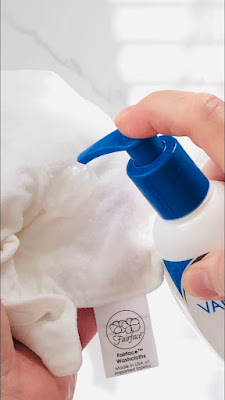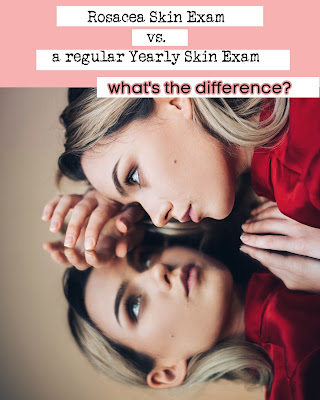Here are-
4 of the BEST tips for keeping your Rosacea-prone skin free from flares
so you can look and feel your best and enjoy your vacation!
4 Tips for protecting your Rosacea prone skin on vacation
1. Bring your own washcloths and drying towels for your face
Did you know that using the washcloths and towels supplied by your hotel, Airbnb or even family or friends, have the potential to cause irritation to your skin?
Your face, in particular, may be triggered by the textures, laundry detergents, bleaching agents or even fabric softeners used when laundering the washcloths and towels, that can lead to redness and irritation to your skin.
Protect your Rosacea prone skin by controlling the unknowns.
Bring your own soft Fairface Washcloths, which are super gentle to Rosacea and sensitive skin, so you can wash your face and not have to worry about anything. It can also be helpful to bring some extra small towels or drying cloths as well.
2. Bring your own skin and hair care products
Free hotel shampoos, lotions and soaps may be tempting because they're FREE but they can also cause irritation to your skin.
Swap out the free hotel toiletries for your own.
Stick to your regular Rosacea skin care routine by bringing your own skin care products, as well as travel size shampoo, conditioner, and body wash that your skin is already accustomed to.
And don't even think about using those awful waxy hotel bar soaps.
TIP: Use your body wash or facial cleanser to wash your hands.
3. Bring your own tissue
I think we can all agree that the tissue and toilet paper in most hotels is far from soft. With sensitive skin, and Rosacea in particular, using abrasive tissue on your nose can lead to unwanted redness and irritation.
While bringing tissue might seem like an unnecessary addition to your vacation toiletry bag, having soft tissues on hand can help protect your skin, alleviate redness, and make a big difference to your Rosacea prone skin.
4. Bring your own pillow and/or pillow cases
Not only can hotel pillows or pillows from other accommodations cause allergies to flare, the pillow cases that cover them can also cause irritation to sensitive skin.
Laundry detergent, fabric softeners and pillow case textures can cause redness and irritation to Rosacea and sensitive skin.
By bringing your own pillow and/or extra, soft pillow cases, you can sleep on a clean pillow case as often as possible, and protect your skin by controlling what your face is pressed against for 8 hours.
+
It may take a little extra work and a bit more luggage room, but following these 4 travel tips can really help protect your Rosacea prone, sensitive skin while you are on vacation!










